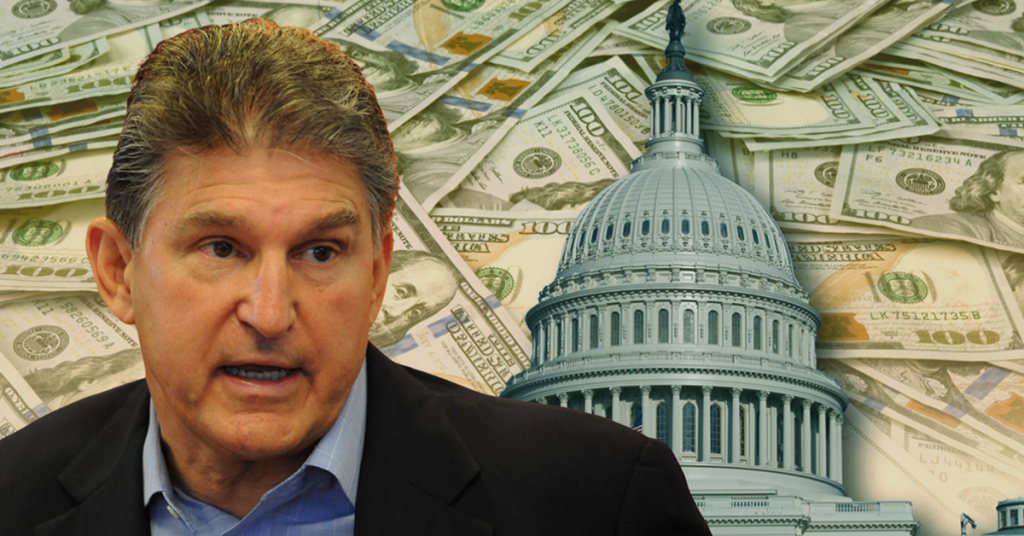President Biden continues to fight to pass some version of his multi-trillion-dollar “Build Back Better” spending agenda through Congress. In its various iterations, the plan includes trillions spent on everything from electric vehicle tax credits and green energy subsidies to taxpayer-funded childcare-for-all to housing subsidies and more. The Biden administration claims that the latest version would involve $1.85 trillion in new spending.
The president has made lofty promises about what we’d get in exchange for such a historic investment. (After all, that price tag is more than the inflation-adjusted cost of FDR’s New Deal!)
“[This is] a framework that will create millions of jobs, grow the economy, invest in our nation and our people, turn the climate crisis into an opportunity, and put us on a path not only to compete, but to win the economic competition for the 21st century against China and every other major country in the world,” Biden said in a recent speech. “It’s fiscally responsible. It’s fully paid for.”
“For much too long, the working people of this nation and the middle class of this country have been dealt out of the American deal, and it’s time to deal them back in,” he continued. “If we make these investments, there will be no stopping the American people or America. We will own the future.”
Simply put, Biden argues that his plan to spend trillions will create jobs, grow the economy, and increase wages—all without adding to the $28.9 trillion (and counting) national debt. Yet a new Ivy League economic analysis undercuts every single one of these claims.
Analysts at the Wharton School of Business reviewed President Biden’s latest $1.85 trillion framework proposal and ran the numbers to project its likely economic impacts, under two distinct scenarios. One is the rather unrealistic scenario where it actually only costs $1.85 trillion. Yet because the proposal is structured with many budget gimmicks and short-term spending authorizations that would likely be reauthorized if implemented, its real cost could be as much as $4.25 trillion. Wharton also modeled the likely impact of this scenario.
In the first case, where the president’s plans cost only what he claims, the analysis still finds his promises falling short on nearly all counts. The tax increases included would not, in fact, pay for the entire proposal, and it would lead to a 2 percent increase in government debt over the long run. (That might sound small, but it’s hundreds of billions of taxpayer dollars!) And, while Wharton projects that wages would increase slightly, it finds that the overall economy would shrink, not grow, while business investment and hours worked would decline.
Erm… how’s that revitalizing America? And those dismal results are under Biden’s rosy assumptions. Under the more realistic scenario where spending provisions are accurately accounted for and the real cost is north of $4 trillion, the investment’s return is even more spectacularly awful.
Government debt would increase by 25 percent over 30 years—that’s trillions and trillions in new spending that is not, in fact, paid for. The economy would shrink—not grow—nearly 3 percent over this timeline compared to the baseline, while wages would decline 1.5 percent and hours worked would fall 1.3 percent.
It’s easy to see why government spending could have these meager results. Proponents of big government spending, like Joe Biden, focus solely on the purported benefits of their plans.
Yet every dollar spent somewhere must ultimately, directly or indirectly, come from somewhere else in the economy. The resources invested by the government in one area are, by definition, resources that would have been invested somewhere else by the private sector.
The tax hikes to partially fund the spending discourage work and tax away money that would have otherwise been invested. The debt incurred to partially fund the spending “crowds out” resources available for private sector investment. It’s not just a wash, either. In taking resources that would have been allocated via market signals and instead allocating them based on politics, government redistribution generally leads to net economic losses.
As Ludwig von Mises famously put it, “The government and its chiefs do not have the powers of the mythical Santa Claus. They cannot spend except by taking out of the pockets of some people for the benefit of others.”
It’s with the reality of trade-offs in mind that the Wharton analysis is able to reliably predict the negative impacts of Biden’s plans.
This analysis is nothing short of devastating for the president’s plans. Biden wants to confiscate and spend trillions of our taxpayer dollars and is promising us the world in return for this investment. But Ivy League analysts and basic economic principles alike expose how empty those promises really are.
Brad Polumbo
Brad Polumbo (@Brad_Polumbo) is a libertarian-conservative journalist and Policy Correspondent at the Foundation for Economic Education.
This article was originally published on FEE.org. Read the original article.


